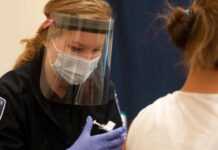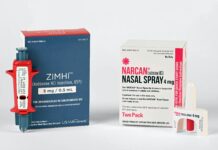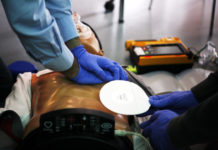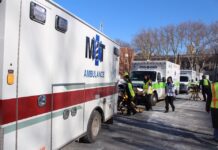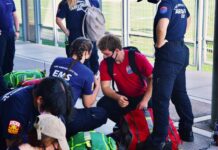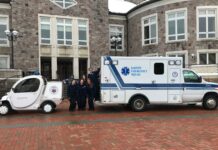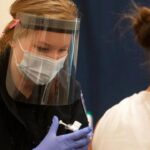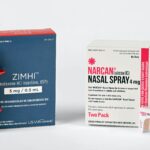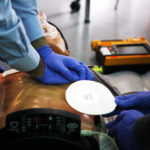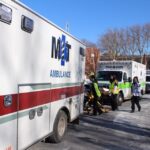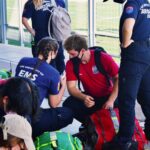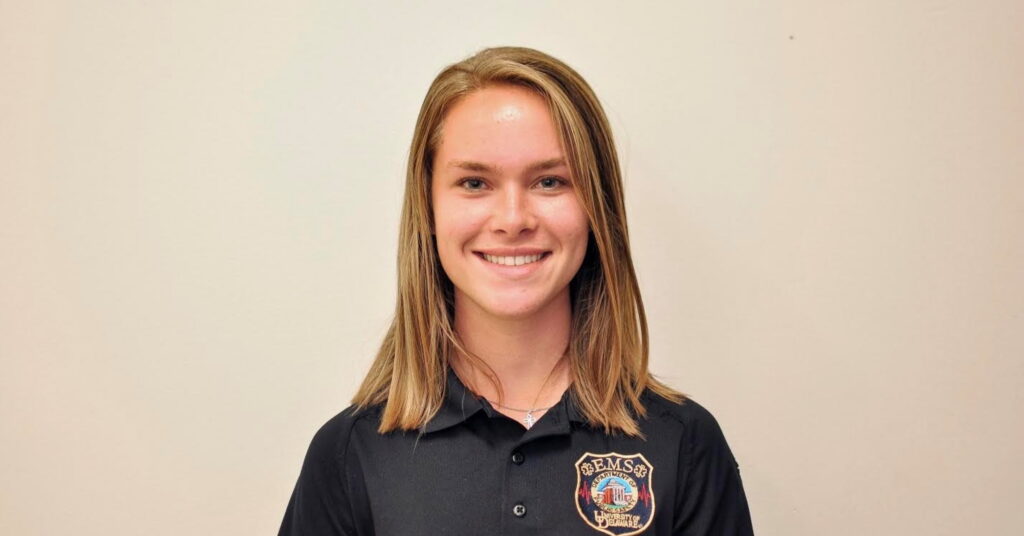
Name: Kerry Keough
Hometown: Wilton, CT
Major: Health Behavior Science
Favorite EMS Memory: We do a lot of bonding outside of shifts. We frequently would all go to the solar house (the station) and watch holiday movies.
Fun Fact: We routinely do pranks on one another. We hide an inflatable shark and put it in unique places to prank one another.
This interview was conducted by JCEMS Director of Business Development, Christopher Gaeta.
Can you describe how you all at the University of Delaware (UD) routinely run shifts?
We average four student volunteers on call for each shift. We love training. To break down those four roles, we have a Crew Chief, or sometimes called our “Cleared Tech,” in addition to an Assistant Tech who is also an EMT. With that there is also a Cleared Driver, and then the fourth is usually an attendant which can range from a probationary member or those currently in EMT class.
Before COVID-19, what was a typical shift like?
It would depend on the day, but we do rig check regularly. Also, we cook meals in our kitchen area, discuss any interesting learning points from recent calls, or use the conference rooms if we have work to get done. People come over even when they are not on shift to just help out or build that communal bond.
How has the virus impacted the squad’s operations?
We tried our best to stay in service during the onset of everything [March 2020]. Some students stayed on campus or in the area, and so they rotated to help the best that they could staff the rig. Given the pretty large decrease in students generally on campus calls went down.
Was there any concerns with PPE supply levels?
For PPE, we never knew about where we stood with that. Even today we are still not too sure when or if we will run out. The campus police at UD helped a lot with that given our close interactions with them. Plus, we are a sub-section that falls under Public Safety so even before the pandemic we had a strong relationship with them.
What was it like running calls during this time of social distancing from roughly March through the end of 2020?
For the fall semester the university let some students come back to campus based on circumstances. For example, many freshmen were on campus if they chose. Only a small part of campus was open though, and similar to other schools we had quarantine dorms and other protocols in place to help mitigate the impact of COVID. Our squad did not get involved in contact tracing, so all the nursing students ran the COVID tests on campus. Monday and Wednesday it was mainly nursing students running that pretty significant undertaking with other campus stakeholders.
From a more national view, there appears to be far more students applying to medical school. Are you seeing more interest for those wanting to join the squad this year?
Due to COVID, it is hard to say. We had to close off applications to join. The new probationary class did not finish their training as the pandemic began to affect operations in March of 2020 so our squad had to pause recruitment this fall to finish training from the spring.
What are you most proud of about your squad’s COVID response?
I was amazed by how many of our members stepped up to the plate. We did not know really anything about COVID. No one backed down and everyone wanted to help out. University of Delaware Emergency Care Unit put together their own N-95 fit testing, and so this allowed us to settle some uncertainties about PPE precautionary procedures. We never have been afraid of fully running out of PPE. I think our members would find a way to keep the service running if we were out of PPE. Our command staff would go out of their way to allow our members to keep riding if it meant finding novel ways to obtain the appropriate PPE.
Is there anything that you all are looking forward to when we hopefully are able to respond to calls without an inordinate amount of PPE?
I think on calls the personal aspect of being with your patients and being able to interact with them normally is what I miss most. It is not that comforting to a patient when we are fully suited up. I think we have had a lot of calls in the past where it was sometimes necessary to give a hug when appropriate. Also, I think many of us are excited to get back to building that squad comradery where we all hang out at the squad’s main base.
Any advice for incoming first years that might be interested in joining the squad but aren’t too sure about the commitment or what it entails?
When I was going into campus EMS I did not know what this entailed. I really encourage those that have an interest to pursue this and have a discussion with current or prior UD squad members. I have made so many friends doing this and you learn so much. I would not be where I am today without it. Lastly, I would just also stress that you get out what you put into this. If UD students are interested in learning more, they should reach out to our recruitment and retention officer.
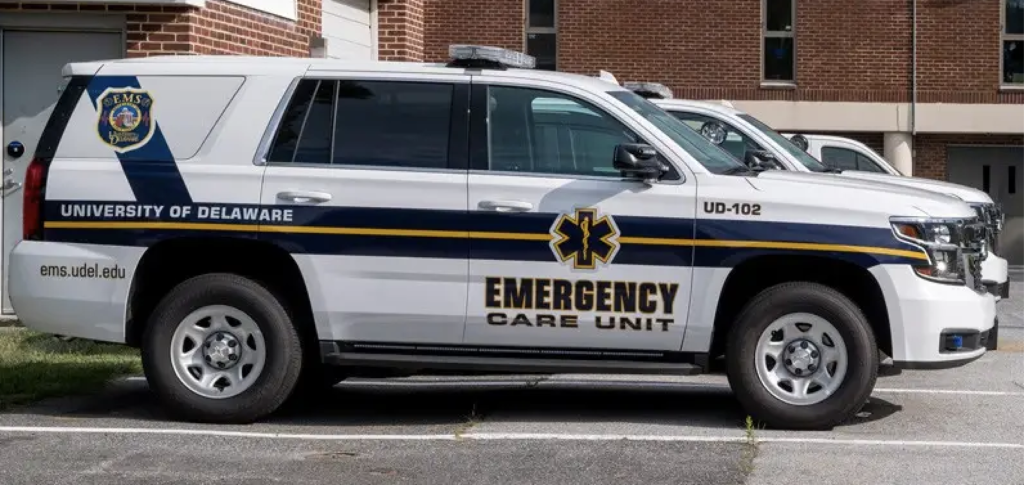
Author & Article Information
Author Affiliations: From University of Delaware Emergency Care Unit – in Newark, DE, USA (K.K.); The Journal of Collegiate Emergency Medical Services, National Collegiate EMS Foundation, West Sand Lake, NY, USA (C.G.).
Address for Correspondence: [Interviewer] Christopher Gaeta, EMT, The Journal of Collegiate Emergency Medical Services | E-mail: JCEMS@CollegeEMS.com
Conflicts of Interest/Funding Sources: By the JCEMS Submission Declaration Form, all authors are required to disclose all potential conflicts of interest and funding sources. C.G. serves in an uncompensated editorial role for JCEMS. All authors declared that they have no other conflicts of interest. All authors declared that they did not receive funding to conduct the research and/or writing associated with this work.
Submission History: Received December 17, 2020; accepted for publication December 19, 2020.
Published Online: December 31, 2020
Published in Print: December 31, 2020 (Volume 3: Issue 2)
Reviewer Information: In accordance with JCEMS editorial policy, interview responses are reviewed by the JCEMS Editorial Board. Interviews are published as submitted – save for copy-editing.
Copyright: © 2020 Keough & Gaeta. This is an open access article distributed under the terms of the Creative Commons Attribution 4.0 International (CC BY 4.0) License, which permits unrestricted use, distribution, and reproduction in any medium, provided the original author and source are credited. The full license is available at: https://creativecommons.org/licenses/by/4.0/
Electronic Link: https://doi.org/10.30542/JCEMS.2020.03.02.02

